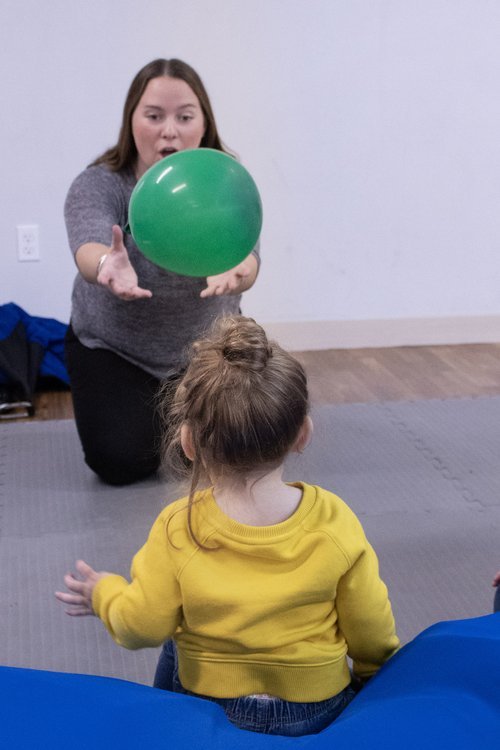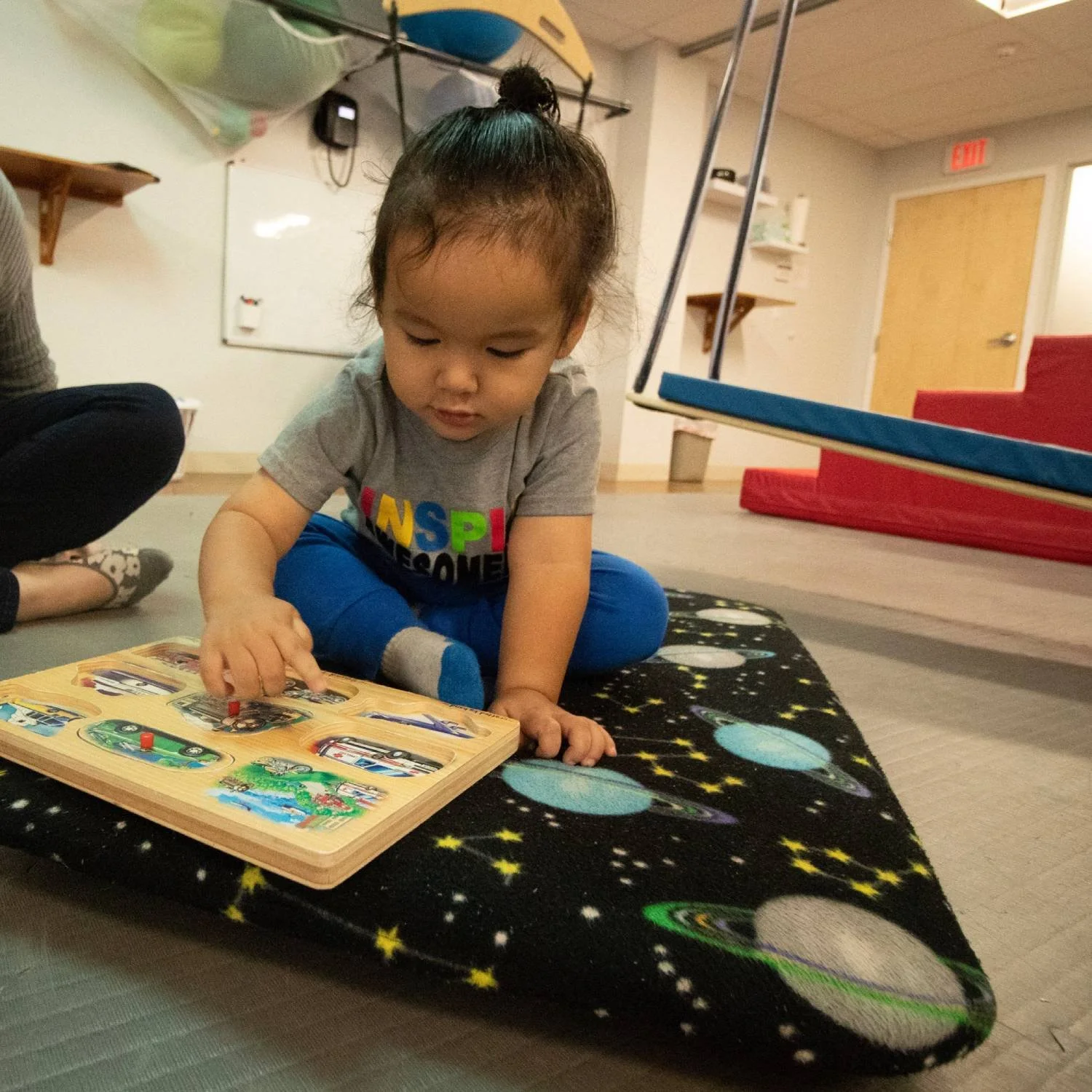Pediatric Occupational Therapy
Helping children develop the skills they need to maximize independence in their daily lives.
How Occupational Therapy affects kids
For many children, occupational therapy is a critical part of their health care. By helping children to develop the skills needed to succeed in areas such as play, self-care, school performance and socialization, our pediatric occupational therapists (OTs) aim to boost a child’s self-esteem and build a sense of accomplishment.
Occupational Therapy at Buttonloop
Occupational therapy provides opportunities for children to engage in play-based activities that assist in building skills in the appropriate developmental sequences to achieve functional independence and strengthen their sensory processing, gross motor, fine motor, and visual motor skills. Therapists address sensory and motor development while improving attention, self-regulation, and self-confidence. Functional skill training, compensatory strategies, and task or environmental adaptations are taught and implemented to support successful participation in everyday life.
Our pediatric occupational therapists have specialized training in…
-
Sensory Integration Therapy
-
Therapeutic Listening Therapy
-
SOS Approach to Feeding Therapy
-
Handwriting Without Tears
-
Astronaut Training
-
Neuro-Developmental Therapy
-
Self-Regulation Strategies
-
Reflex Integration
-
Deep Pressure Proprioceptive Technique
-
Zones of Regulation
-
Alert Program
-
Visual Training
-
Bal-A-Vis-X
OT may be beneficial if your child demonstrates any of the following:
Falls frequently
Appears clumsy and/or frequently bumps into people or objects
Tends to complete tasks with too much or too little force
Has difficulty with transitions
Is always "on the go”
Has difficulty playing cooperatively with others and/or interacting socially
Struggles to participate appropriately in family outings/social gatherings
Becomes easily overwhelmed in busy environments
Seems excessively fearful of movement activities or new experiences
Has difficulty following multi-step directions
Has trouble coming up with new ideas for play
Has difficulty redirecting after a change in routine
Has trouble performing normal daily routines and activities such as:
getting dressed
brushing teeth
washing hands
having hair washed/brushed/styled
having nails cut
Is startled or becomes easily distressed by everyday sounds
Avoids being messy or touching or playing with messy materials
We are focused on what a child can do and will celebrate every victory with you!
Sensory Integration Therapy
Sensory integration is the process in which our brain takes in, interprets, and organizes sensory information to make an appropriate motor or emotional response. Sensory integration dysfunction occurs when the information is not perceived or organized into an appropriate response. Children may have difficulty with sensory modulation (understanding the intensity and nature of the sensory input) or with sensory discrimination (assigning proper meaning to the quality of the sensory input). Sensory processing dysfunction can impact all aspects of a child’s life by limiting their ability to interact with the environment from which they should be taking in information and learning constantly.
Our sensory-enriched clinic provides a variety of gross motor/sensory equipment that allows children to explore and engage in play opportunities used to help organize the nervous system. Our experienced occupational therapists are trained in specific sensory strategies, which are incorporated into treatment plans on an individualized basis.
Gross Motor Skills & Coordination
Our therapists evaluate children’s gross motor skills and how they impact the child’s ability to engage in everyday activities. Children rely on their postural stability to maintain their balance when navigating their environments and when seated to maintain an optimal level of arousal. Our therapists assess various skills, such as crossing midline, bilateral coordination, balance, strength, tone, righting reactions, and reflex integration to target areas of difficulty. During therapy sessions children are encouraged to move through developmentally appropriate patterns of movement to gain strength and control for volitional movements.
Fine Motor Skills Development
Our therapists assess fine motor skills in regard to finger, hand and arm development, including reaching, grasping, manipulating and grasp pattern development. Therapists use a variety of activities to improve fine motor strength, in-hand manipulation skills, finger opposition and joint stability for improved fine motor output.
Visual Motor Skills & Integration
Visual-motor integration is the ability to take in visual information and coordinate an appropriate motor response to it. Children who are challenged in this area have difficulty coordinating their movements to what they see. This can impact children’s handwriting and coloring, and their ability to catch a ball, complete puzzles, tie their shoes or build with blocks. Our therapists evaluate children’s visual-motor skills and then may make adaptations to activities, such as breaking the activity down into parts. The therapist may also provide visual supports or compensatory strategies for deficits.
Self Regulation Skills
Our therapists teach strategies and use specific programs to assist children in understanding sensory integration related to arousal levels. They help children learn how to monitor, maintain, and change their level of alertness so that it is appropriate for a situation or task. They also work to promote self-regulation including emotional control, sensory regulation and executive functioning skills.
Self Care for Kids & Daily Living Skills
Daily responsibilities of children at home, in the environment, and at school include bathing, eating, feeding, functional mobility, personal hygiene and grooming, sleeping, toilet hygiene and play. Our therapists work on developing the prerequisite skills needed to complete these tasks independently, as well as work to find ways to adapt or alter equipment to promote independence and self-confidence in the children we help.
Occupational Therapy Testimonial
Our therapist’s approach was perfect from the moment she began working with my son. She is extremely thorough and professional, while also making each session challenging and fun. The improvement in my son's fine motor, handwriting and coordination has been remarkable. As a healthcare provider myself, I can tell you just how knowledgeable and caring our therapist is!
— Parent of Current Patient






There are a 3 ways to get started with Buttonloop Children’s Therapies.
No matter where you are on your journey, we can help.
If you are ready to get started and book an appointment, please choose:
Option 1
Complete our intake form, and we can move forward with scheduling your initial appointment.
If you are wondering if therapy could be helpful and would like to speak with a clinician, please choose:
Option 2
Book a free 10-minute phone consultation with a clinician.
If you’d like someone from our team to reach out to you directly, please choose:
Option 3
Fill out the contact form, and we will contact you by phone or email.









